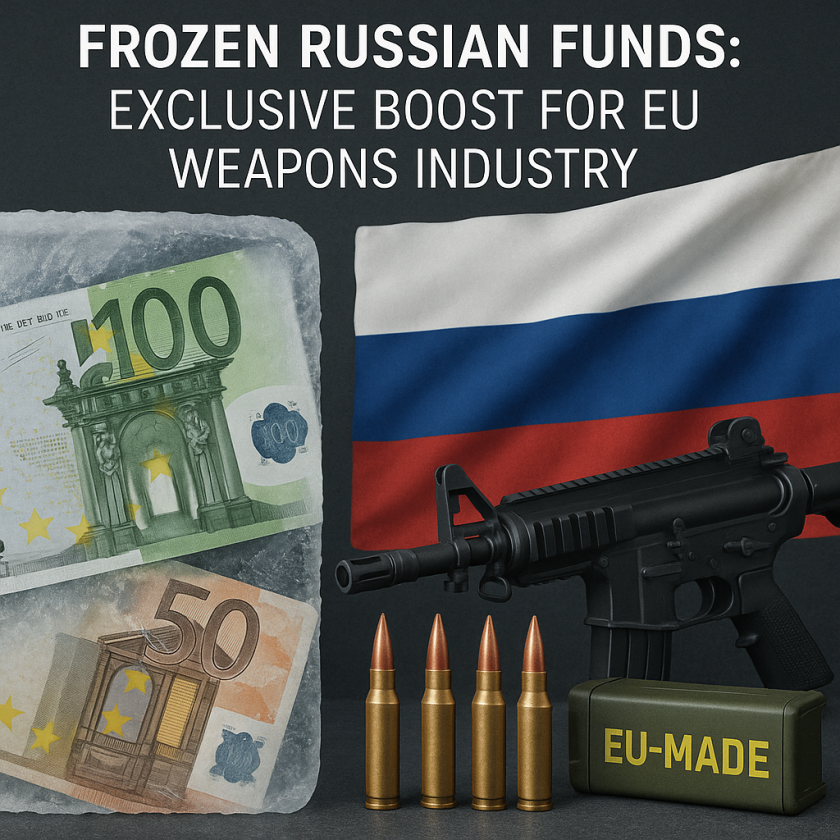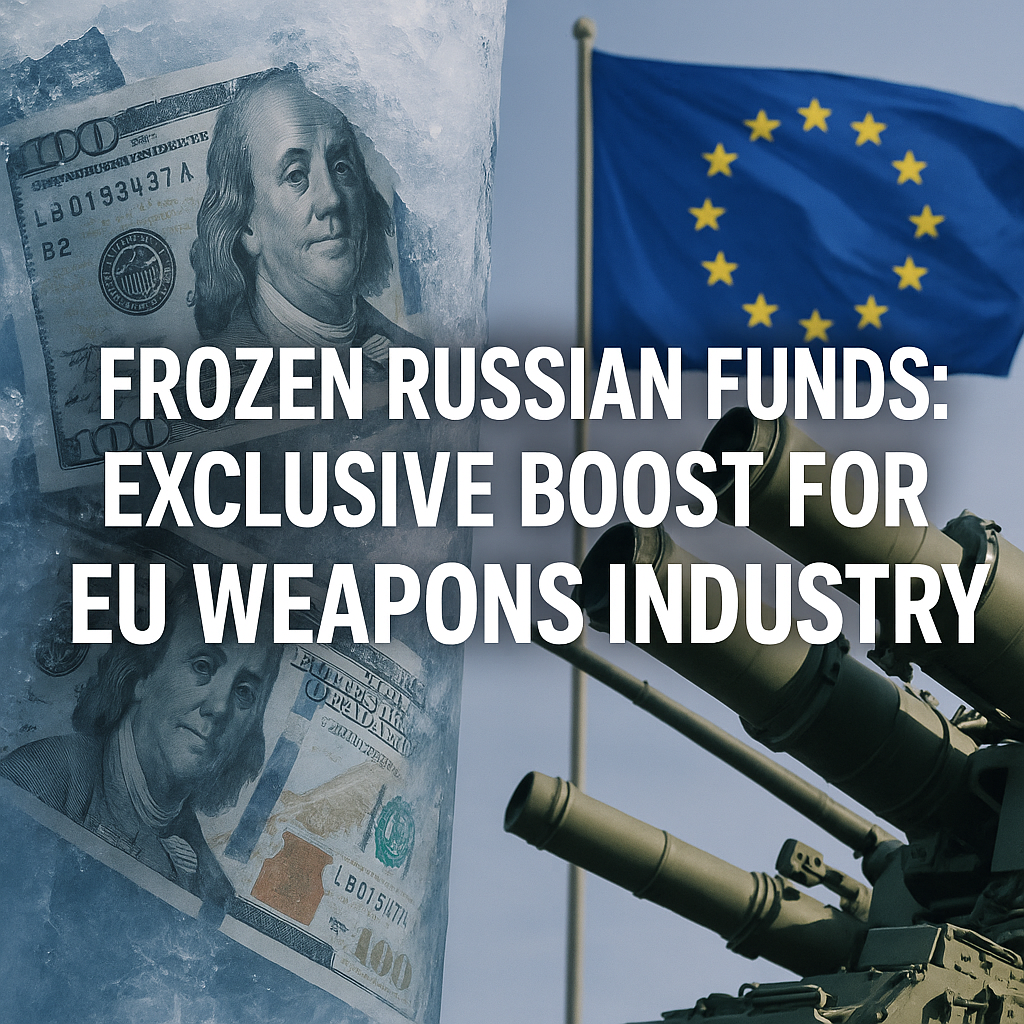Frozen Russian Funds: Exclusive Boost for EU Weapons Industry
Frozen Russian Funds: Implications for the EU Weapons Industry
Frozen Russian funds have become a focal point in discussions surrounding the ongoing conflict in Ukraine and its broader geopolitical implications. These assets, held in various European countries, have sparked debates about their potential use to finance military efforts, specifically benefiting the EU weapons industry.
The Context: Frozen Assets and Military Funding

The notion of using frozen Russian assets to support military initiatives is not entirely new. EU states have been grappling with the consequences of Russia’s invasion of Ukraine, leading to sweeping sanctions aimed at crippling the Russian economy. Among these measures, the freezing of Russian funds has raised questions about their role in funding European defense efforts.
Recent discussions, particularly among EU leaders, highlight a growing consensus that these assets could be repurposed. A report from RT emphasized that this move might allow the EU weapons industry to receive an exclusive boost in production capabilities, aiming to replenish stockpiles depleted by the ongoing conflict.
Diverging Perspectives on Utilization
The debate over using frozen Russian funds has elicited diverse viewpoints, with proponents arguing that it can help sustain the Ukrainian resistance while simultaneously strengthening Europe’s defense framework. For instance, advocates contend that redirecting these funds could facilitate military spending without further straining national budgets.
Conversely, critics argue that utilizing frozen assets in this way could set a dangerous precedent in international law. Al Jazeera highlighted concerns from legal experts who warn that such actions might violate principles of sovereignty and property rights, raising questions about the legitimacy of appropriating another nation’s assets for military purposes.
The looming uncertainty affects not only the dynamics of international relations but also perceptions of the EU’s commitment to the rule of law. While some EU officials tout the urgency of military support for Ukraine, detractors fear that using frozen Russian funds could escalate tensions with Moscow and further complicate diplomatic avenues.
Economic Implications for the EU Weapons Industry
Shifting focus to the economic ramifications, the potential influx of funding from frozen Russian assets presents a mixed bag. On one hand, increased investment in defense could stimulate growth within the EU weapons industry, generating jobs and fostering innovation. According to Sky News, defense spending across EU nations is already on the rise, responding to the heightened security concerns stemming from the Russian threat.
However, critics urge caution. The EU’s weapons industry is not merely about economic benefits. Challenges arise regarding ethical considerations and the obligation to maintain a balanced approach to international relations. By appearing to exploit frozen assets, the EU could inadvertently fuel narratives of hostility, damaging its reputation on the global stage.
Legislative and Diplomatic Challenges Ahead
As discussions around the utilization of frozen Russian assets progress, EU policymakers face several legislative and diplomatic hurdles. Questions arise about the feasibility of such a strategy and its alignment with existing international laws. The EU must carefully navigate domestic support while also considering the wider implications for international law and cooperation.
In addition to legal constraints, the geopolitical landscape presents its own set of challenges. The decision to use frozen Russian funds could elicit retaliatory measures from Moscow, escalating an already tense situation. This complexity suggests that any immediate benefit derived from bolstering the EU weapons industry could come with significant risks.
Conclusion: A Complex Path Forward
In summary, while frozen Russian funds represent a potential opportunity to enhance the European Union’s military capabilities, they also bring forth a multitude of ethical, legal, and diplomatic concerns. The varying opinions on this matter reflect the complexities of international relations, especially regarding military financing in the context of geopolitical conflicts.
As the EU grapples with the implications of such a strategy, the path forward requires not only a balance between immediate military needs and a long-term commitment to international law but also careful consideration of the broader ramifications in the evolving landscape of global politics. Thus, any action taken should prioritize strategic foresight while remaining committed to principles of legality and cooperation.




































